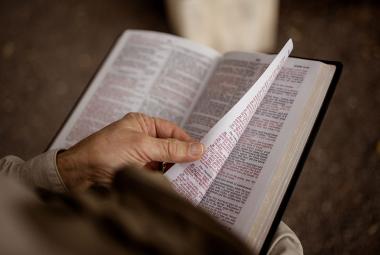The Messianic Psalms
The Book of Psalms is quoted in the New Testament more than any other book in Old Testament. Jesus said that the psalms spoke about Him (Luke 24:44) and they constitute irrefutable testimony to the Divine inspiration of the Scriptures. The Messianic psalms include Psalm 2, 8, 16, 22, 23, 24, 40, 41, 45, 68, 69, 87, 89, 102, 110, 118, et al.
Next to Psalm 22, Psalm 69 is the most quoted psalm in the New Testament: Psalm 22 deals with the death of Christ, Psalm 69 deals with the life of Christ.
Psalm 69 is quoted in the Gospels of Matthew, Mark, Luke, and John, and also in Acts and Romans. (There are also many references to it beyond those actual quotations.)
The Early Years
This psalm tells us about the silent years of Christ’s childhood and young manhood, of which the Gospels tell us practically nothing. (Dr. Luke tells us about an incident in the life of our Lord when He was twelve years old, but we learn nothing else about Him until He is about thirty years old.) This psalm fills in some of the details of those early years. We see some of Christ’s dark days in Nazareth and His dark hours on the Cross.
We begin way up north at Nazareth: We hear the heart sob of a small boy, a teenager, a young man…
(Psalm 69 is classified as an imprecatory psalm because of an imprecatory prayer found in vv.22–28. It is from these verses the New Testament writers often quoted. His imprecatory prayer is actually a cry for justice. This is a psalm of His early humiliation and rejection.)
I am become a stranger unto my brethren, and an alien unto my mother’s children.
Psalm 69:8
Mary had other children, which confirms the record in the Gospels (Mt 13:55; Mk 6:3). He became an alien unto His mother’s children—not His father’s children because Joseph was not His father. They were half-brothers and half-sisters. It may have been a very unhappy home. (This verse also teaches the virgin birth of Christ.)
I made sackcloth also my garment; and I became a proverb to them.
Psalm 69:11
They that sit in the gate speak against me; and I was the song of the drunkards.
Psalm 69:12
Those who are “sitting in the gate” are the high officials of the town, the judges. The drunkards and the best people in Nazareth both spoke against Him. (You know how forgiving small towns are!) His life in Nazareth was not nice. Recall the vicious exchange between Jesus and the Pharisees in John 8: “...We be not born of fornication…” (Jn 8:41).
Why did He endure all of this? He was raised in a town where He was called illegitimate in order that I might be a legitimate son of God. The Son of God bore that for me on the Cross; He paid the penalty for my sins.
Yet, He had the most distinguished Family Tree in history: it was encrypted in the Torah (Gen 38) and prophesied in the times of the Judges (Ruth 4). It evaded the blood curse on Jeconiah (Jer 22:30) and included a Virgin Birth (Gen 3:15; Isa 7:14; Ps 69, 110).
Explore the “Sign of the Prophet Jonah”—it may refer to more than simply “three day and three nights” (Jonah 2:2-6). How few of us have considered the 30 years of shame and ignominy that He endured so that we might have clear title to be called “sons of God” (Jn 1:11,12). What a Savior, indeed! Amen and Amen.






